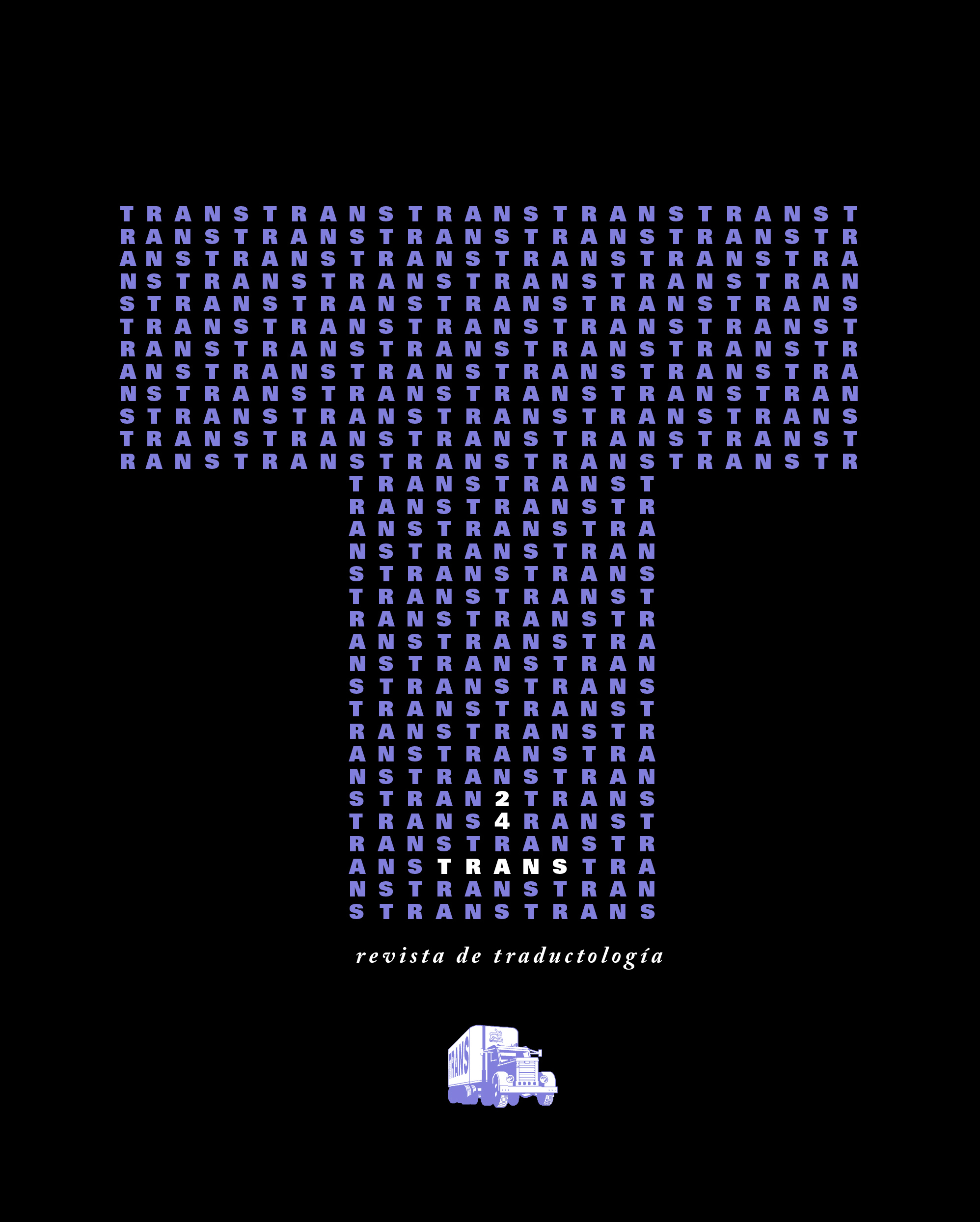An An Exploration of Editorial Translation in Spain: interviews with publishing and literary translation professionals
Interviews with publishing and literary translation professionals
DOI:
https://doi.org/10.24310/TRANS.2020.v0i24.9527Keywords:
publishing translation, literary translation, labour market, fieldwork, interviewsAbstract
A fundamental component of the book market is editorial translation, whose professionalization takes root in the 20th century. Although many of the most widely read titles are translations, the Spanish book market is so unique that only a small percentage of the associated editorial translators can devote themselves entirely to book translation as a professional activity. In addition, students of Translation and Interpreting studies who wish to enter the publishing translation market are often unaware of how it works. To solve this lack, the students themselves, as part of a fieldwork, have interviewed two editors and seven professionals of literary translation. The interviews presented in this work help not only to know certain aspects of the publishing translation market in Spain, but also to clarify some doubts of those translators who intend to carve out a career in it.
Downloads
Metrics
References
Afi, ACE Traductores (2017): Informe del valor económico de la traducción editorial, Madrid: CEDRO, Ministerio de Educación, Cultura y Deporte, <https://ace-traductores.org/wp-content/uploads/Informe-del-valor-econ%C3%B3mico-de-la-traducci%C3%B3n-editorial-1.pdf>, [Consulta: 01-VI-2020].
Aguilar Río, José Miguel (2004): «La enseñanza de la traducción y su relación con las exigencias del mercado laboral: un estudio de caso», TRANS. Revista de Traductología, 8, 11-28, <http://www.trans.uma.es/pdf/Trans_8/t8_11-28_JMAguilar.pdf>, [Consulta: 01-VI-2020].
Calvo, Elisa (2009): Análisis curricular de los estudios de traducción e interpretación en España. Perspectiva del estudiantado. Tesis doctoral, Granada: Universidad de Granada, <https://digibug.ugr.es/handle/10481/3488>, [Consulta: 01-VI-2020].
Kalinowski, Isabelle (2002): «La vocation au travail de traduction», Actes de la recherche en sciences sociales, 144, 47-54, <https://www.persee.fr/docAsPDF/arss_0335-5322_2002_num_144_1_2807.pdf>, [Consulta: 01-VI-2020].
Ministerio de Educación, Cultura y Deporte (2018): El sector de libro en España, Madrid: Secretaría General Técnica, <https://www.cegal.es/wp-content/uploads/2018/05/El-Sector-del-Libro-en-Espa%C3%B1a.-Abril-2018.pdf>, [Consulta: 01-VI-2020].
Zaro, Juan Jesús (2019): «Literary Translation», en Roberto A. Valderón y África Vidal (eds.), The Routledge Handbook of Spanish Translation Studies. Londres/Nueva York: Routledge, 44-58.
Downloads
Published
How to Cite
Issue
Section
License
All contents published in TRANS. Revista de Traductología are protected under the Creative Commons Attribution-NonCommercial-ShareAlike 4.0 International (CC BY-NC-SA 4.0) license. All about this license is available in the following link: <http://creativecommons.org/licenses/by-nc-sa/4.0>
Users can copy, use, redistribute, share and exhibit publicly as long as:
- The original source and authorship of the material are cited (Journal, Publisher and URL of the work).
- It is not used for comercial purposes.
- The existence of the license and its especifications are mentioned.
- ShareAlike — If you remix, transform, or build upon the material, you must distribute your contributions under the same license as the original.
There are two sets of authors’ rights: moral and property rights. Moral rights are perpetual prerogatives, unrenounceable, not-transferable, unalienable, imprescriptible and inembargable. According to authors’ rights legislation, TRANS. Revista de Traductología recognizes and respects authors moral rights, as well as the ownership of property rights, which will be transferred to University of Malaga in open access.
The property rights are referred to the benefits that are gained by the use or the dissemination of works. TRANS. Revista de Traductología is published in an open access form and it is exclusively licenced by any means for doing or authorising distribution, dissemination, reproduction, , adaptation, translation or arrangement of works.
Authors are responsable for obtaining the necessary permission to use copyrighted images.












21.png)
